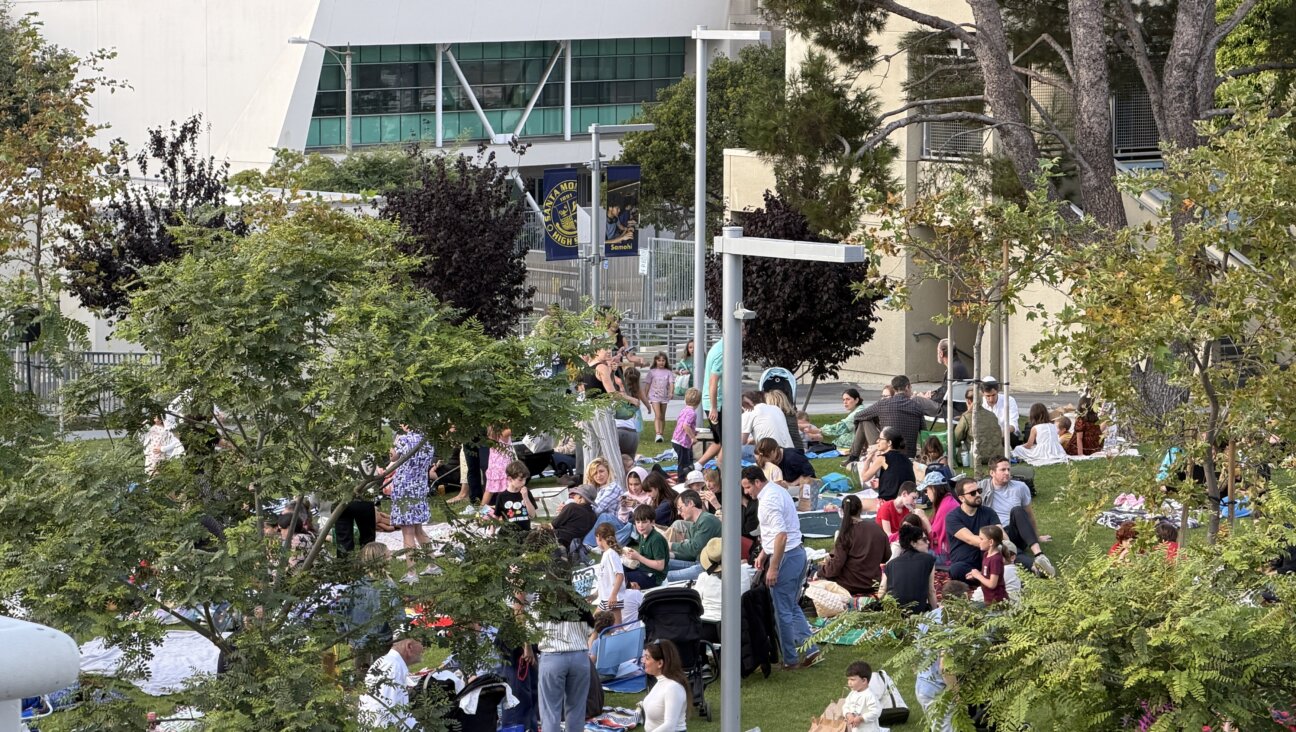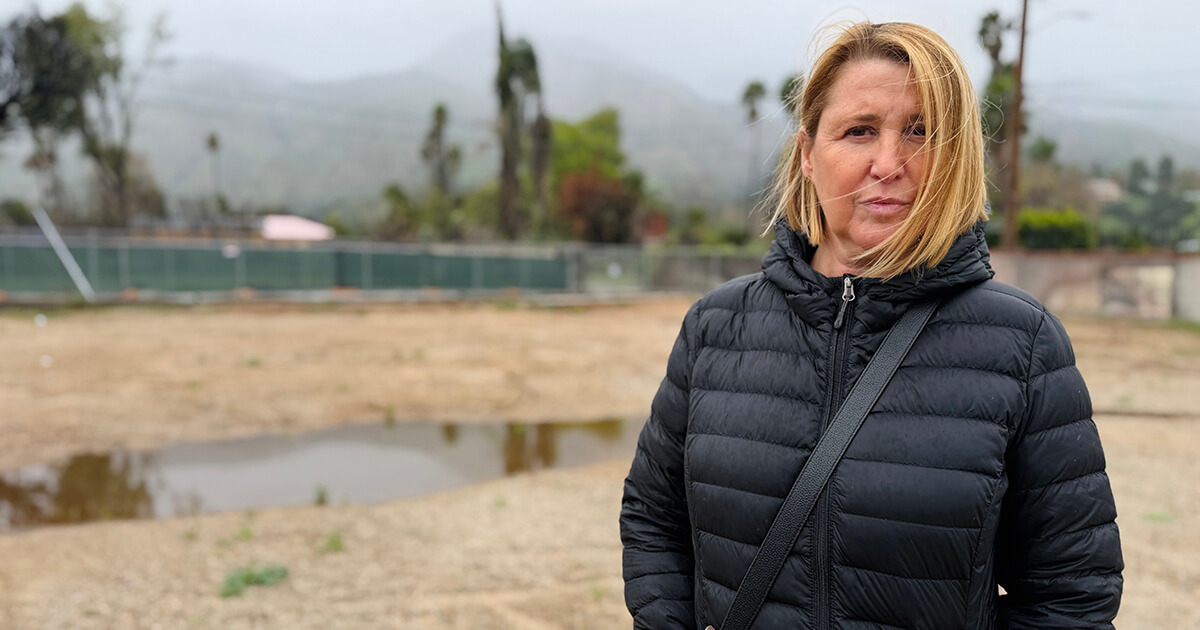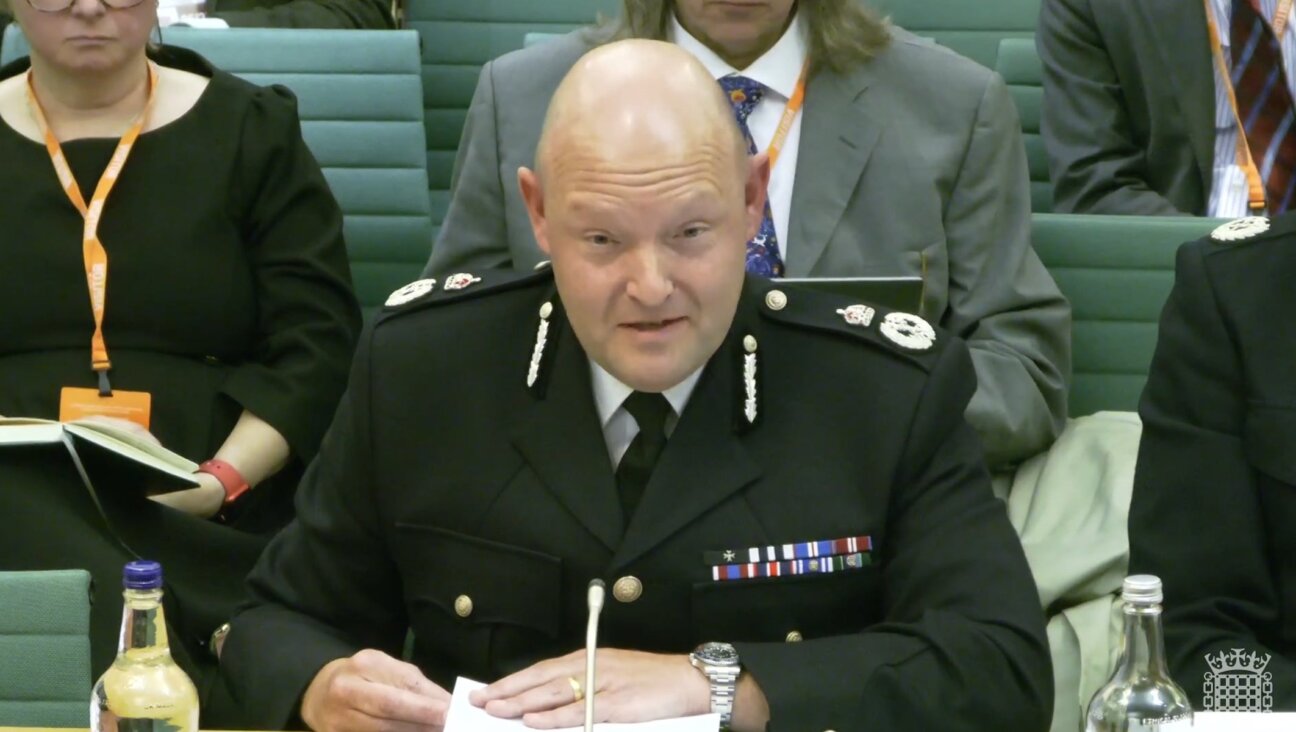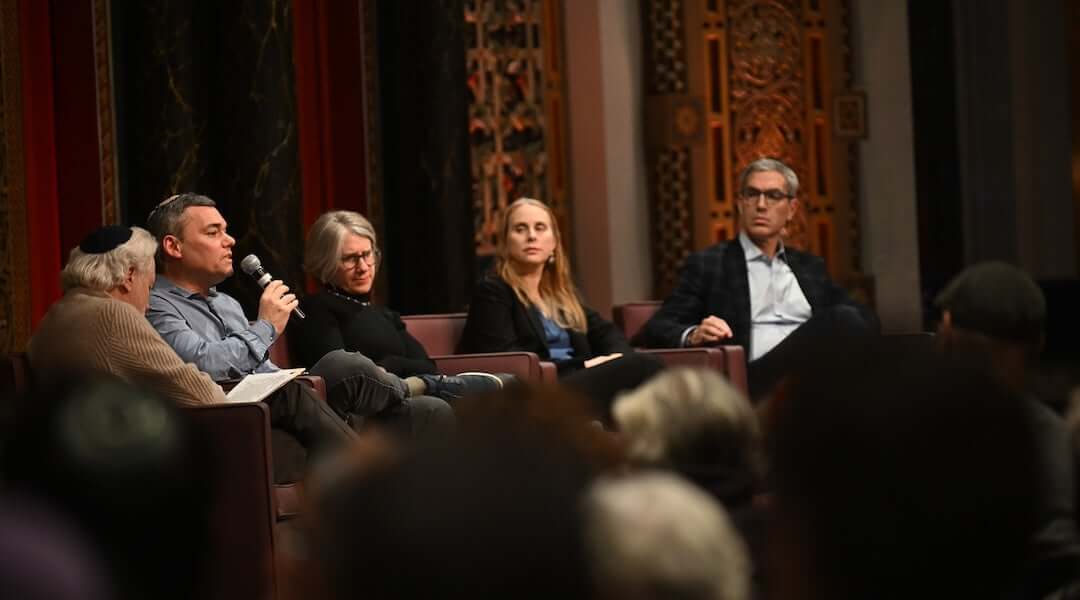‘Nobody can protect you,’ Columbia dean warns foreign students after Mahmoud Khalil’s arrest
Experts had mixed feelings about Jelani Cobb cautioning foriegn students not to publish articles about Gaza or Ukraine
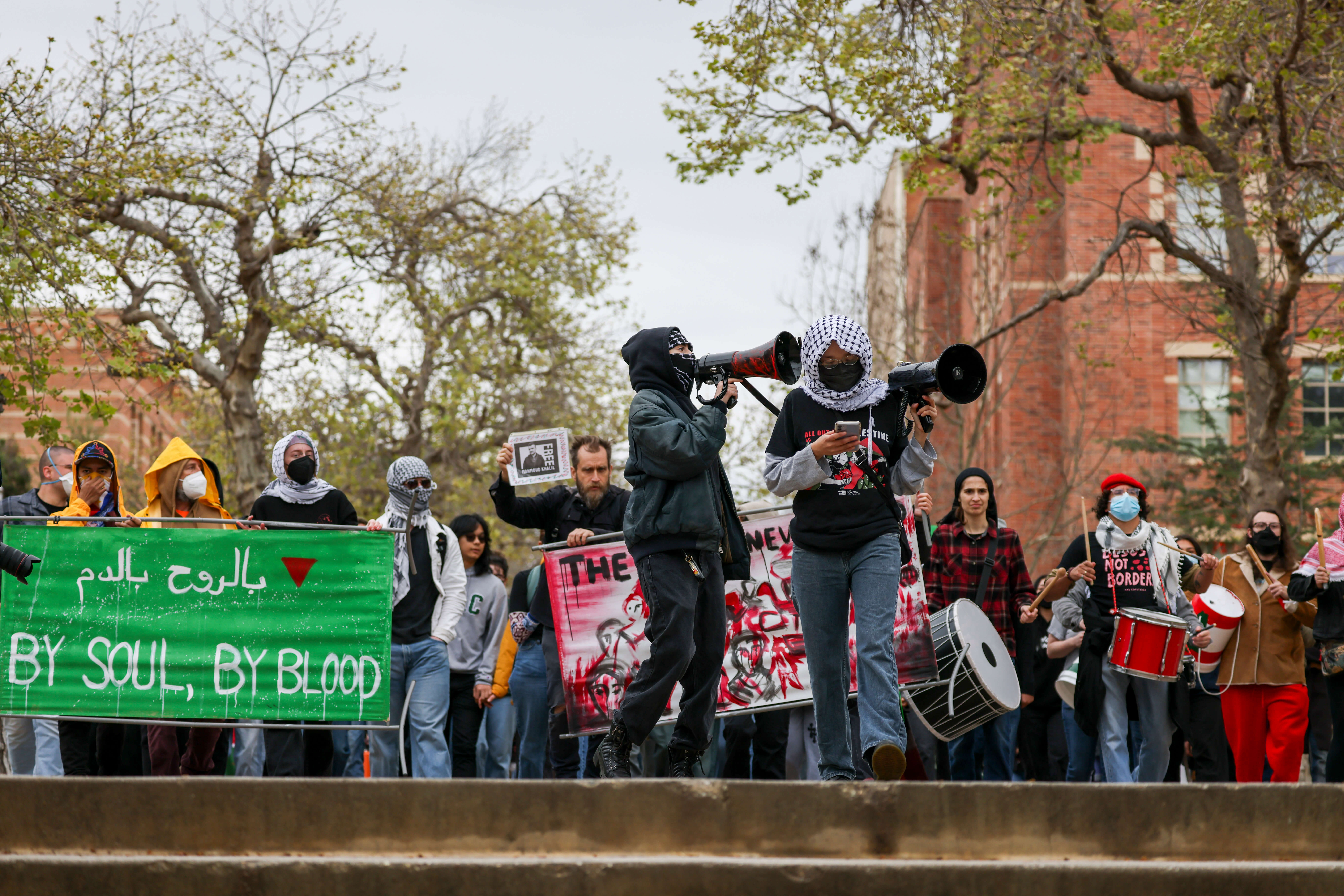
Pro-Palestinian protesters march at UCLA on Tuesday, opposing ICE’s detainment of Mahmoud Khalil, a Palestinian activist who led protests at Columbia University last year. Photo by Getty Images
Amid the fallout at Columbia University over the Department of Homeland Security’s arrest of recent graduate Mahmoud Khalil, one comment stood out: “Nobody can protect you.”
The remark came from Jelani Cobb, dean of Columbia’s prestigious journalism school, and was directed to a group of international students on visas who are nearing graduation.
Cobb and Stuart Karle, a First Amendment lawyer and adjunct professor at Columbia, cautioned the graduate students against posting commentary about the Middle East on social media or reporting on Gaza, Ukraine or the protests against Khalil’s arrest, the first in what President Donald Trump has pledged will be many more detentions and possible deportations of non-citizens who participated in campus demonstrations against Israel.
“These are dangerous times,” Cobb added, in remarks reported Wednesday by The New York Times.
For some, the comment embodied a dangerous tone of accommodation to authoritarian overreach by the Trump administration. “Columbia j-school students from abroad are being told to obey in advance,” Dan Froomkin, who runs the media monitor Press Watch, wrote on Bluesky.
Columbia’s administration, which has been under heavy fire from Congressional Republicans and the Trump administration, has been criticized by activists for failing to defend Khalil and other student protesters. Federal agencies announced last week that they were canceling $400 million in grants to the university and President Donald Trump’s antisemitism task force plans to visit the school as part of a national tour. Interim President Katrina Armstrong, who Khalil emailed for assistance with online and legal threats the day before he was detained, has been criticized for not releasing a statement directly commenting on his arrest, which took place at university housing.
Others said that Cobb was only sharing a depressing but real truth with students who are months away from receiving a diploma.
“If you are not a U.S. citizen, if you publish anything that could be interpreted as pro-Palestinian, I think that it’s likely that you will lose your visa or your green card,” said Kelly McBride, an ethics expert at Poynter, the nonprofit journalism institute.
She added that the inability to assign visa or green-card holders, including Palestinians, to cover the response to the Israel-Hamas war would be a loss for readers. “We lose insights that American citizens might not be able to articulate,” McBride said.
Karle, a veteran media lawyer, said that his advice to the Columbia students was the same that he would provide to any clients: “When in Rome, do as the Romanians do,” meaning it is important to recognize that a country’s laws apply differently to citizens and non-citizens.
“There is local law that may or may not protect you,” Karle said in a phone interview. “Do your work up to your standards — but recognize there may be limits on your ability to publish.”
He said that international students who will soon graduate should still feel empowered to report on any topics that they wish, but wait to publish until they return home or decide that they no longer need to worry about their visa being revoked.
It’s not clear whether other colleges and universities have provided similar advice to their international students, who lack some of the same First Amendment protections as United States citizens.
Khalil, who has a green card, was targeted by a number of pro-Israel groups in the days before he was arrested. And Betar, a far-right group, said it has shared a database of international students who have participated in pro-Palestinian demonstrations with the Trump administration.
Robert Shibley, an attorney with the Foundation for Individual Rights and Expression, said university administrators should focus on sharing legal information — not prescriptive advice — with students who might be vulnerable to deportation.
“Let students make up their own minds as to whether or not they want to continue speaking out,” Shibley said.
Louis Keene and Samuel Eli Shepherd contributed reporting.
Clarification: This story has been updated to correct a transcription error in a quote from Stuart Karle. He said, “when in Rome, do as the Romanians do,” not, “when in Rome, do as the Romans do.”

